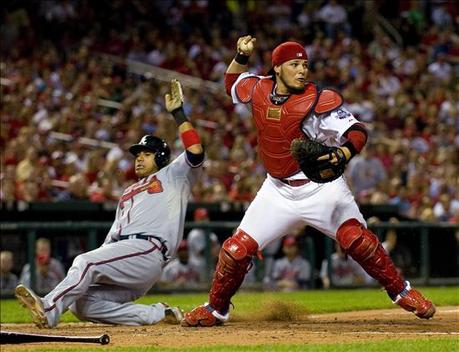
It takes a special kid to put on that equipment everyday and play the position right.
I’ve been watching a lot of the MLB Draft commentary on TV and a common theme when discussions turn to catchers is that everyone wants a good catcher. It’s been said many times that the fastest way to the major leagues is to be a good catcher. I’m not sure if the stats match that statement but certainly the importance of a good catcher cannot be overstated.
With the demand for catchers very high, you’d think that the number of players who can catch would be very high also. Unfortunately, that is not the case. The reason is simple …
Nobody wants to catch. It’s too physically tough of a position.
It takes a different type of kid to be willing to undergo the physical and mental beating that catchers take during a season. A type of kid who prepares and plays a little different than most kids on the field.
Aside from a canon of an arm and a great ability to call a game, here are some other traits that rank very high when I think of great catchers:
Hustles. Runs everywhere. He runs on the field and off no matter how close or far the dugout is. He sprints down to backup first base on every grounder when the situation calls for it. He runs after every foul ball, wild pitch, and passed ball. Even when it is hot and humid. He never walks. Hustle is his default position.
“The ball will not get by me” attitude. He blocks EVERYTHING. Whether there are runners on base or not, he takes it personally if a ball gets past him. Makes no difference how wild the pitch was. If it gets past him, it was his fault and not because of the pitcher.
Has a Love-Hate relationship with pain. He accepts that the only time a catcher doesn’t feel pain is the day before the season starts. He feels the pain of foul tips off the hand, leg, shoulders, and mask like everyone else but a part of him also smiles and says “This is why you love catching!”
Serves others. He knows that his primary job is to help his pitchers do better. When outfielders worry about their batting averages or RBI’s, the catcher worries about the 3rd starter’s walks. He takes more pride in helping a pitcher get a complete game shutout than a 4-4 day at the plate.
Is a vocal leader. He talks not just to hear himself speak but to say something that someone else needs to hear. He reminds the pitcher to get over to 1st base on a ball to the right side of the field. He tells the middle infielders to make sure of the first out on a double play. He yells the outs. He works the dugout between innings and makes sure the pitcher knows the next inning’s game plan.
Has a keen awareness of details. He sees the subtle changes in where the batter’s feet are located. He notices a runner’s lead for tendencies. He notices changes in his pitcher’s mechanics, grips, and release point. He knows the umpire’s zone and calls the game accordingly.
I’m sure people could add more (feel free to put your own in the comments!) but those listed above will go a long way in making a player a very valuable catcher.

